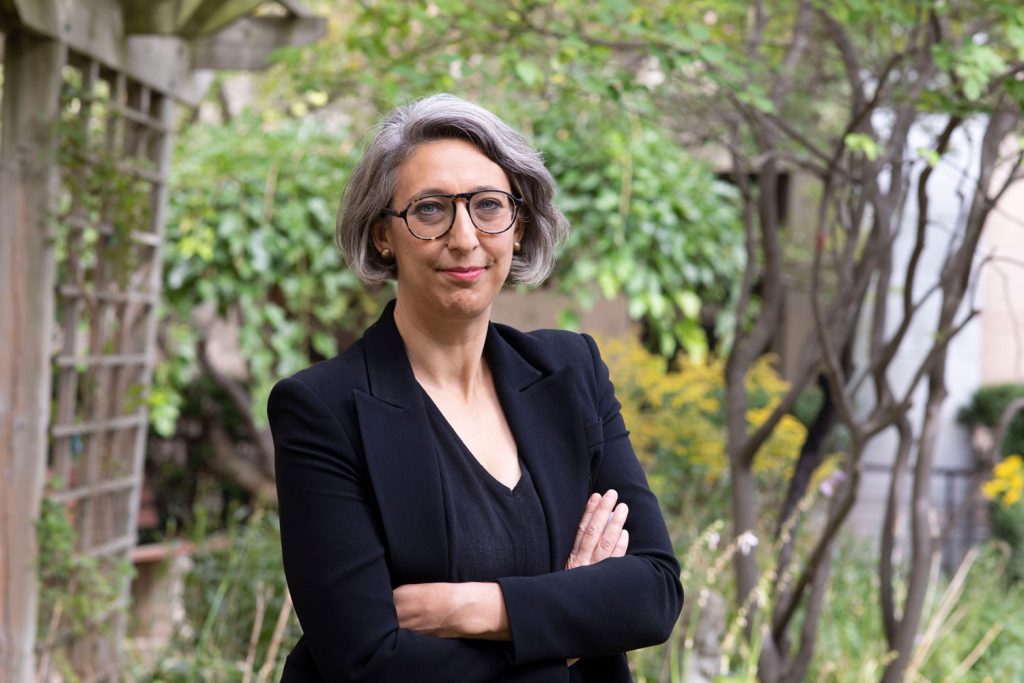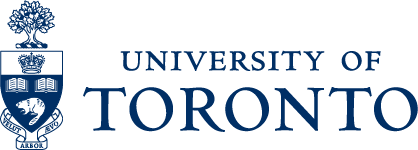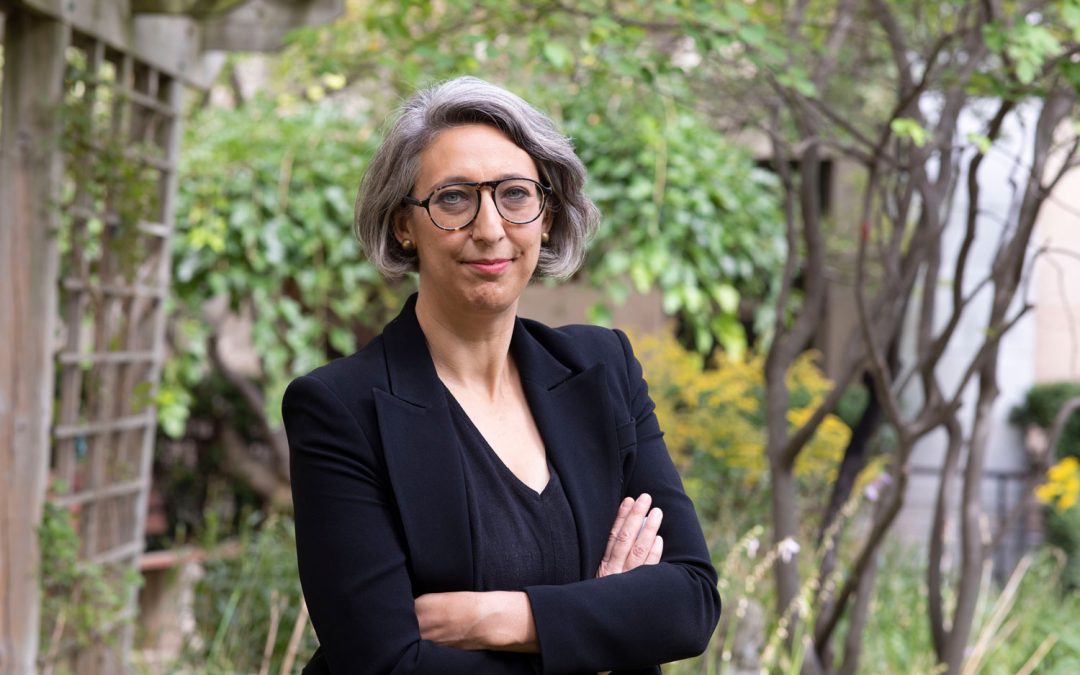
Clinician, scientist and microbiologist Dr. Samira Mubareka has studied infectious diseases and medical microbiology for almost two decades. Her research in respiratory viruses and zoonoses led her and her team to influential breakthroughs that helped Canada and the world get a head start on tackling COVID-19.
If an infectious disease arrives in Canada, there is a high chance it will make an early appearance in Toronto.
Researching Coronaviruses: Made Possible by Toronto’s CL3 Facility
Before the arrival of the COVID-19 pandemic, Dr. Mubareka and her collaborators worked to identify patients with COVID-19. Within months of the first COVID-19 case arriving in Toronto, were able to isolate the virus at the University of Toronto’s Combined Containment Level 3 (CL3) laboratory. In late-February 2022, Mubareka became one of the first researchers to successfully isolate the SARS-CoV-2 virus in U of T’s C-CL3 facility as part of a collaborative effort with McMaster and the Sunnybrook Health Sciences Centre. This virus became a key source of SARS-CoV-2 for many academic laboratories across the country. It would also play a crucial role in pandemic preparedness and response by enabling innovations for the development of diagnostic tests, antivirals and vaccines. Her work has had vast implications for public health, safety and biosecurity in Canada.
A Journey Bound Towards COVID-19
One might argue that Dr. Samira Mubareka was destined to join the global “fight” against COVID-19. Originally wanting to become a rural family doctor, Dr. Mubareka’s passion for the field of infectious disease took hold through encounters with several leaders in infectious disease research during her clinical rotations. Her experience prompted her to pursue a specialization in Infectious Diseases and Medical Microbiology at the University of Manitoba, followed by a research fellowship at the Mount Sinai School of Medicine, New York City.
This career change led Dr. Mubareka down a path that would have her poised as a leader on the frontlines of the battle against COVID-19. She described the pandemic as one of the most important learning experiences of her life, and was an integral part of a team of clinicians that treated the first patient in Canada diagnosed with COVID-19.
Mubareka now serves on numerous COVID-19 committees in an advisory capacity, notably on the Chief Science Advisor of Canada’s COVID-19 Expert Panel and as Chair of the Royal Society of Canada’s One Health Working Group focusing on viral zoonoses. Additionally in 2020, Dr. Mubareka helped form the Sunnybrook Translational Research Program for Emerging and Respiratory Viruses (SERV), with a focus on viral genomics, transmission, and the development of medical countermeasures in response to COVID-19.
The Reach of Toronto’s Bioinnnovation Ecosystem
Toronto is a critical transit hub and portal for high consequence pathogens spread by global travel during international outbreaks (SARS-CoV and SARS-CoV-2). For researchers, Canada’s largest city presents important opportunities to access to up to date public health data and clinical material, accelerating groundbreaking discoveries that propel an already-thriving ecosystem towards further innovation.
“If you think back, the first SARS cases from 2003 landed here in the Toronto area, including here at Sunnybrook,” said Dr. Mubareka. “During the Ebola crisis in West Africa, several returning travellers to Toronto were undergoing inspection for Ebola. Similarly, several healthcare centres in Toronto received returning travellers under public health investigation for MERS-CoV (Middle East Respiratory Syndrome) as well. Although no cases of Ebola or MERS-CoV were detected, the initial importations of SARS-CoV and SARS-CoV-2 flowed through Toronto and other major metropolitan areas. If an infectious disease arrives in Canada, there is a high chance it will make an early appearance in Toronto.”
Dr. Mubareka also highlights the collaborative and interconnected advantage that Toronto’s bioinnovation ecosystem offers. Dr. Mubareka praises the city for its readiness to share resources in pursuit of developing innovative breakthroughs across the continuum of life sciences. In fact, in forming SERV within Sunnybrook, Dr. Mubareka has had the opportunity to collaborate with hospitals such as St. Michael’s Hospital and SickKids, in conjunction with U of T, aided by the proximity and ease of access offered by Toronto’s life sciences network.
Enabling Canada’s Fight Against COVID-19
One can think of a genome as an organism’s own instruction manual, containing all of its relevant code. In viruses, genomes are constantly mutating as they divide and spread by infecting more species, including people, as we have seen with variants of concern (VOCs). Although we don’t know exactly where highly divergent VOCs like the Omicron virus originate from, Dr. Mubareka has played a central role in a One Health collaboration to identify and characterize SARS-CoV-2 in wildlife. This group identified the first cases of SARS-CoV-2 in free-ranging wildlife in Canada, and is characterizing a highly divergent SARS-CoV-2 sequenced from white-tailed deer samples from Ontario.
Genomic sequencing can be used to track mutations and the spread of viruses. Scientists use sequencing to identify the genetic material found in an organism or virus. This helps them to understand a virus’s movement and transmission as it changes and adapts to its host. As viruses spread and pandemics evolve, solving the puzzle that is genomic sequencing can help diagnose, prevent transmission, and aid contact-tracing efforts.
Isolating the SARS-COV-2 virus that causes COVID-19 and sequencing its genome allowed Canada to track mutations and variants of COVID-19. Ultimately, Dr. Mubareka’s work enabled research across the country as scientists raced to learn more about the virus and develop vaccines, therapies and treatments to help cope with COVID-19. This life-saving research was made possible because of Toronto’s unique bioinnovation ecosystem.
Prof. Samira Mubareka
Microbiologist, Sunnybrook Health Sciences Centre
Clinician Scientist, Veterans Research Program, Sunnybrook Research Institute
Associate Professor of Laboratory Medicine and Pathobiology, University of Toronto

